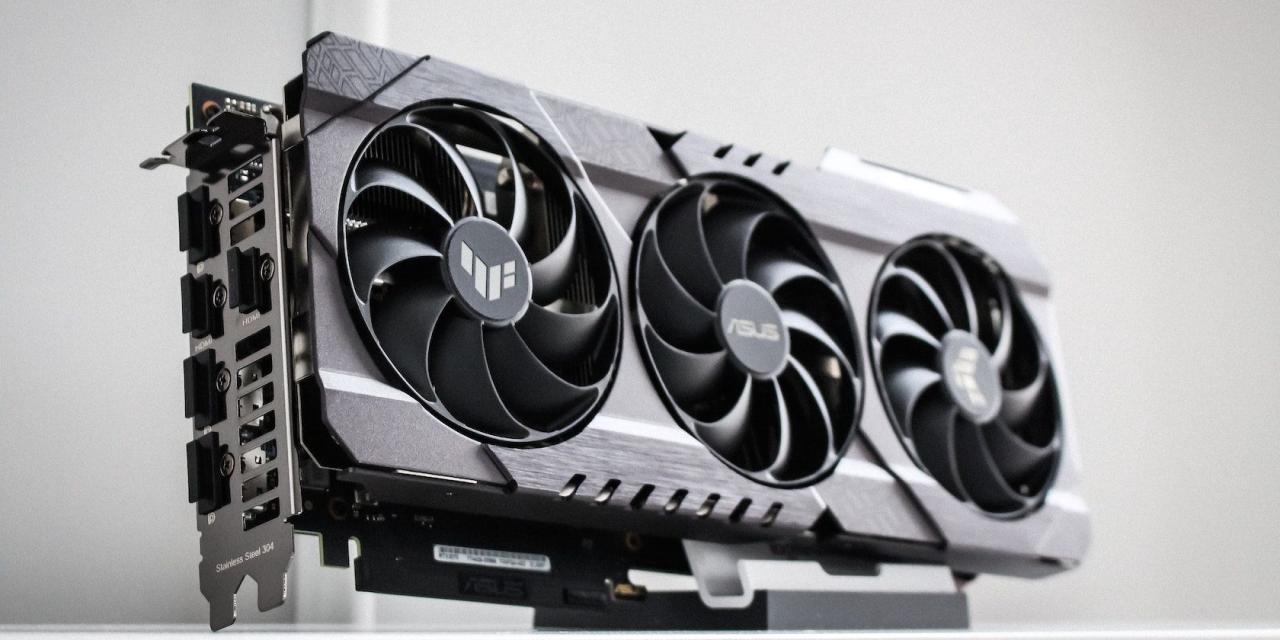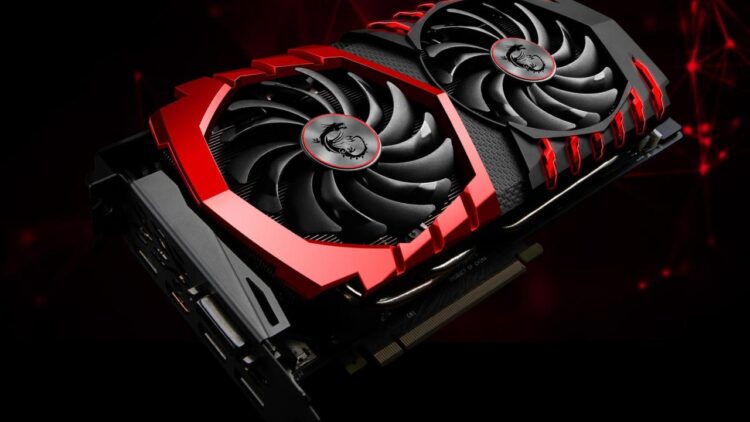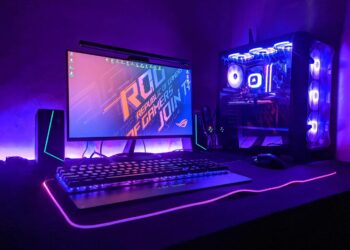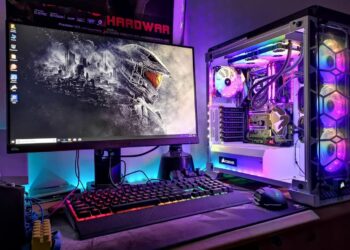The Graphics Processing Unit (GPU) is the undisputed heart of any high-performance gaming PC. It is the single most important component responsible for rendering the stunning, high-fidelity worlds that define modern gaming. While processors and memory lay the groundwork, it is the GPU that breathes life into every pixel, every particle effect, and every ray of light. In 2025, the landscape of top-tier graphics cards is more competitive and technologically advanced than ever before. New architectures, AI-powered upscaling, and a relentless pursuit of realism have pushed the boundaries of what is visually possible. This comprehensive guide will serve as your definitive roadmap to the world of high-end graphics cards. We will demystify the core metrics, dissect the most important rendering technologies, and provide an in-depth comparison of the market’s leading contenders, ensuring you make a strategic investment that will empower your gaming experience for years to come.
The Science of a GPU

Choosing a graphics card is about more than just a model number. Understanding the fundamental technologies and specifications is key to making an informed decision.
A. Understanding Core Metrics
These are the foundational numbers you see on a spec sheet. Knowing what they mean is the first step toward understanding a GPU’s true power.
- VRAM (Video RAM): This is the high-speed memory on your graphics card. It acts as the GPU’s workspace, storing game assets, textures, and frame buffers. Having enough VRAM is crucial for gaming at high resolutions and with high texture settings. For 1080p, 8GB is often sufficient. For 1440p, 12GB is the new standard. For 4K gaming and beyond, 16GB or more is highly recommended to prevent performance bottlenecks.
- CUDA Cores / Stream Processors: These are the “muscles” of the GPU, responsible for all the complex calculations. NVIDIA uses the term “CUDA Cores,” while AMD uses “Stream Processors.” While a higher number of cores is generally better, you cannot compare the core count between different architectures or manufacturers. It’s like comparing the engine cylinders of a motorcycle to a car; the architecture behind them is completely different.
- Clock Speed: The clock speed, measured in Megahertz (MHz), indicates how fast the GPU’s cores are running. The two main clock speeds you’ll see are Base Clock (the guaranteed minimum speed) and Boost Clock (the speed the GPU can reach under ideal conditions). While clock speed matters, it’s just one piece of the puzzle and doesn’t tell the whole story of a GPU’s performance.
- TDP (Thermal Design Power): TDP measures the maximum amount of heat a component can generate under load. For a GPU, this is an indication of its power consumption. A higher TDP means the card will generate more heat and require a more robust cooling solution and a more powerful power supply unit (PSU).
B. Advanced Rendering Technologies
The real magic of modern GPUs lies not just in their raw power, but in the advanced rendering technologies they support.
- Ray Tracing: This is a groundbreaking rendering technique that simulates the physical behavior of light. Instead of using pre-baked light maps, ray tracing calculates how light rays bounce off surfaces, creating incredibly realistic reflections, shadows, and refractions. It is a game-changer for visual fidelity, bringing a new level of realism to lighting and water. However, it is extremely demanding on a GPU and can significantly reduce a game’s frame rate.
- Upscaling Technologies (DLSS vs. FSR): To combat the performance hit of ray tracing and high-resolution gaming, both NVIDIA and AMD have developed intelligent upscaling technologies.
- NVIDIA DLSS (Deep Learning Super Sampling): DLSS uses a dedicated AI processor on the GPU (Tensor Cores) to render a game at a lower resolution and then intelligently upscale it to a higher resolution using a deep learning model. The result is an image that looks almost as good as native resolution but with a massive boost in frame rate. It is a closed-source technology that is only available on NVIDIA RTX cards.
- AMD FSR (FidelityFX Super Resolution): FSR is AMD’s open-source competitor to DLSS. It is a spatial upscaling technology that works on a wide variety of GPUs, including those from NVIDIA. While it doesn’t use AI cores, its latest versions provide a level of performance and image quality that are very close to DLSS.
C. GPU Architecture
The underlying architecture is the blueprint of the graphics card. It dictates how efficiently the GPU uses its resources and supports the latest technologies. As of 2025, the two main players are:
- NVIDIA’s Ada Lovelace: This is NVIDIA’s current-generation architecture. It is built on a 4nm process and features improved CUDA Cores, more efficient RT (Ray Tracing) Cores, and powerful Tensor Cores for AI-powered tasks like DLSS. It is known for its incredible raw performance and industry-leading ray tracing capabilities.
- AMD’s RDNA 3: AMD’s latest architecture, known for its chiplet design that separates the main GPU die from the memory cache. RDNA 3 cards offer excellent rasterization performance and are highly competitive in the performance-per-dollar category.
Top-Tier GPU Comparison for 2025
Now that we’ve covered the fundamentals, let’s look at the best graphics cards in the market, categorized by their performance tier and target audience.
1. The Enthusiast’s Dream: Uncompromising 4K Gaming
This category is for the user who wants the absolute best performance money can buy. These cards are built to handle every game at 4K resolution with settings cranked to the max, including ray tracing.
- NVIDIA GeForce RTX 4090 SUPER: The undisputed king of the hill. With an immense amount of VRAM and a massive number of CUDA Cores, this card offers a level of performance that is in a league of its own. It can handle any game at 4K/60fps and beyond, even with full ray tracing enabled.
- AMD Radeon RX 7900 XTX: AMD’s direct competitor. This card offers incredible rasterization performance that is often on par with the RTX 4090 SUPER in games without ray tracing. While it lags behind in ray tracing performance, it is often more affordable, making it a great choice for gamers who prioritize raw power and value.
2. The 1440p King: The Performance Sweet Spot
This category of cards is for the vast majority of PC gamers. They offer an incredible balance of performance and price, and can handle any game at 1440p with high frame rates.
- NVIDIA GeForce RTX 4070 Ti SUPER: An excellent choice for 1440p gaming. This card has a great amount of VRAM and a powerful architecture that can handle both rasterization and ray tracing with ease. It’s a fantastic all-arounder that is highly efficient.
- AMD Radeon RX 7800 XT: AMD’s contender for the 1440p crown. This card offers a phenomenal performance-to-price ratio, often trading blows with the RTX 4070 Ti SUPER in rasterization performance. It’s a great value for gamers who want high-end performance without breaking the bank.
3. The Entry-Level Powerhouse: High-Refresh-Rate 1080p
This category is for the budget-conscious gamer who still wants a great experience. These cards are perfect for high-refresh-rate 1080p gaming and can even handle some 1440p gaming with the help of upscaling.
- NVIDIA GeForce RTX 4060 Ti: A fantastic entry-level card that is perfect for esports and competitive gaming. It can easily push high frame rates at 1080p and supports all of NVIDIA’s advanced technologies, including DLSS.
- AMD Radeon RX 7600: A great value for the price. This card is an excellent choice for 1080p gaming and offers a good level of performance that can handle a wide variety of games.
Conclusion
The graphics card market in 2025 is a testament to technological innovation and intense competition. The top-tier GPUs available today are not just incremental upgrades; they are a leap forward in visual fidelity and raw performance, powered by advancements in AI, ray tracing, and architecture. The best GPU for you is not the one with the highest price tag, but the one that perfectly fits your needs, your monitor, and your budget.
For the enthusiast who demands the best, the NVIDIA GeForce RTX 4090 SUPER is an unparalleled choice, delivering a level of performance that will handle any game you throw at it. For the vast majority of gamers, the RTX 4070 Ti SUPER or the AMD Radeon RX 7800 XT offer an incredible balance of power and value, providing an outstanding 1440p experience. And for the budget-conscious gamer, cards like the RTX 4060 Ti or the Radeon RX 7600 offer a fantastic entry point into the world of high-performance gaming. Your GPU is the heart of your PC, and by choosing wisely, you are making a strategic investment in countless hours of breathtaking, high-fidelity gaming.













